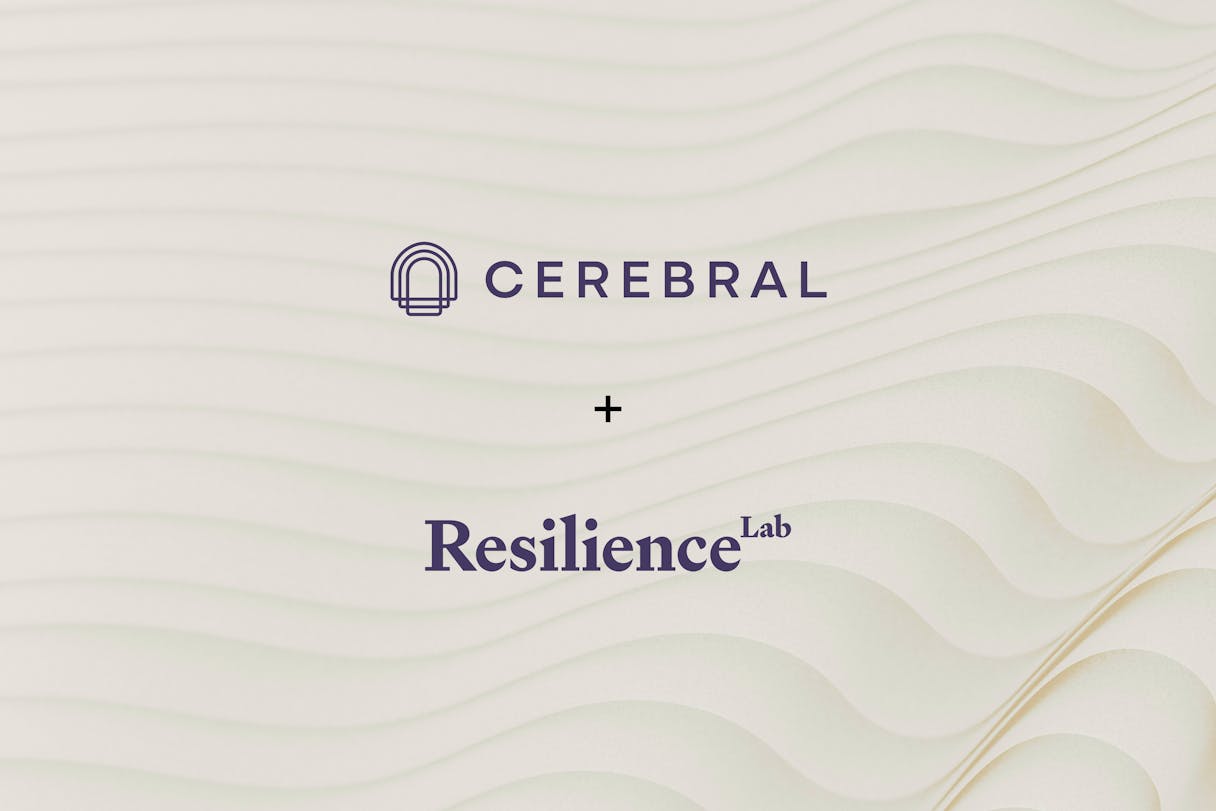Everything You Need to Know About the Different Stages of Therapy
Conversations about mental health have become more open and commonplace, with well-known figures like Olympic swimmer Michael Phelps, Olympic gymnast Simone Biles, singer Zayn Malik, actor Dwyane “the Rock” Johnson, and even former First Lady Michelle Obama speaking publicly about their struggles with mental health issues.
Even still, there remains a stigma surrounding mental health, which is just one reason why 54.7% of American adults (over 28 million individuals) with a mental illness do not receive treatment.
If you’re reading this, then you’re likely interested in therapy and curious as to what to expect. Congrats! You’ve made an incremental step to getting the professional support you need to become your best self.
In this comprehensive guide, we’re providing you with everything you need to know about the therapeutic process so you can overcome any lingering hesitation and step confidently into your first session—kicking off your journey to wellness.
The Stages of Therapy
There are multiple stages when it comes to therapy, which can be broken down into the following:
- Assessment and Intake
- Building Rapport
- Self-Exploration and Awareness
- Targeting Negative Patterns and Developing Coping Skills
- Sustaining Progress
Assessment and Intake
The first stage of therapy involves understanding your needs and creating a personalized plan to help you feel better. During your first session, you'll talk to your therapist about your health history, mental health concerns, and anything else that's affecting your well-being. You might also talk about your family, childhood, or past experiences, as these can sometimes influence how we feel today.
Once your therapist has a good understanding of your situation, you'll work together to create a plan for moving forward.
Here are some things you can expect to discuss during the assessment stage:
- Your symptoms: What are you struggling with? How are you feeling, thinking, and behaving? What are your hopes and goals for therapy?
- Your history: Have you had any past mental health diagnoses? What are your family relationships like? Have you experienced any trauma or difficult life events?
- Your lifestyle: How do you eat, sleep, and exercise? Do you use drugs or alcohol? How is your social support?
- Your thoughts and feelings: What are your thoughts and beliefs about yourself and the world? How do you typically react to stress or difficult situations? What strengths and coping skills do you already have that are serving you well? What barriers to mental wellness do you experience?
Building Rapport
The strength of the therapeutic relationship is the strongest predictor of success in therapy. Building a trusting relationship with your therapist lays the groundwork for open communication and collaboration. This involves more than just the exchange of information; it's about creating a genuine bond. Your therapist will actively listen to you, creating a safe space for open communication.
Further questions about your personal history, family dynamics, and past experiences will enable the therapist to develop a profound understanding of the factors shaping your current mental health.
As your therapist gets to know you better, they'll work alongside you to identify any problems that need tackling. This teamwork builds the trust you need for your therapy journey, making sure you always feel safe and supported.
Self-Exploration and Awareness
The phase of self-exploration and awareness marks a pivotal moment in your therapeutic journey, where the focus shifts inward as you take a deep dive into your thoughts and emotions. Your therapist will be there to guide you as you discover what makes you tick: your patterns, triggers, and how you react to life's ups and downs. It's not just about checking off symptoms, but truly understanding yourself from the inside out.
Targeting Negative Patterns and Developing Coping Skills
In this phase, you’ll explore the hidden patterns that may be impacting your mental health. With your therapist as your guide, you'll examine and understand negative habits that may be rooted in your thoughts, actions, or relationships. By shining a light on these patterns, you'll gain the power to break free and build a stronger, more confident you.
Your therapist will work with you to identify specific challenges and develop personalized coping strategies. These strategies are tools that will help you navigate life's ups and downs with greater resilience.
Here's an example:
- Challenge: Feeling overwhelmed by work stress.
- Coping strategy: Learning relaxation techniques like meditation or deep breathing.
- Benefit: Feeling calmer and more focused throughout the day.
Sustaining Progress
This part of therapy is about making real-life changes. Your therapist will guide you through exercises like journaling, mindfulness, and self-assessment, helping you understand your thoughts and feelings better.
Your therapist will help you fit these exercises into your daily routine. The more you reflect, the better you'll be able to manage your emotions and navigate challenges outside of therapy. As you do these exercises, you and your therapist will track your progress, celebrate your successes, and identify areas where you can still improve.
Your therapist will also help you challenge negative thought patterns or behaviors and replace them with positive ones. As you work together, you'll gain insights into how your past experiences affect your present. This self-awareness is key to developing coping strategies and making lasting changes.
Navigating Conversations with Your Therapist
Remember, therapy requires your active participation to work. You’ll need to put in consistent effort during (and between) sessions to see real progress. Transparent communication is key.
Openly sharing your thoughts and concerns forms the cornerstone of effective communication in therapy. Transparency creates not just a dialogue but a safe space for exploration and understanding. Your therapist is there as a compassionate guide, and by honestly expressing your feelings and experiences, you lay the foundation for a therapeutic alliance built on trust.
Clarify Expectations
Discussing your expectations for therapy is important to ensure a harmonious therapeutic journey. Take the opportunity to inquire about your therapist's approach, methodologies, and treatment modalities. Clarifying expectations allows both parties to get on the same page regarding the objectives of the therapeutic process.
Ask About Progress
Therapy is a journey, and just like any journey, there will be ups and downs. Regularly discussing your progress with your therapist allows you to check in and make sure you're still on the right track to achieving your mental health goals.
Seek Guidance on “Homework” Resources
Asking your therapist about resources you can complete outside of sessions is a great way to take charge of your mental health. They can recommend books, articles, or exercises that fit your needs, giving you tools to understand yourself better and grow as a person, leading to lasting positive change.
Here are some benefits of exploring these resources:
- Learn new skills: Develop coping mechanisms to manage stress, anxiety, or other challenges.
- Build self-awareness: Gain a deeper understanding of your thoughts, feelings, and behaviors.
- Boost your confidence: Feel empowered to take control of your mental health.
- Make progress between sessions: Continue growing even when you're not in therapy.
Start seeing a therapist online with Cerebral
You no longer have to commute to a traditional office to see a professional therapist anymore. Online therapy offers a convenient and effective alternative, allowing you to connect with a qualified professional from the comfort of your own home.
Just as effective as in-person therapy, online sessions provide a safe and confidential space to discuss your concerns and work towards achieving your goals. Whether you're struggling with anxiety, depression, relationship issues, or any other mental health concern, online therapy can offer the support and guidance you need.
Here are some of the benefits of online therapy:
- Convenience: Connect with your therapist from using your computer, tablet, or smartphone. No need to worry about traffic, parking, or childcare.
- Accessibility: Find a therapist anywhere in your home state (rather than just those close by) who specializes in your specific needs.
- Privacy and Comfort: Receive therapy in the privacy and comfort of your own home, feeling relaxed and at ease.
- Cost-Effective: Online therapy is typically much more affordable than traditional in-person sessions.
- Flexible Scheduling: Choose sessions that fit your busy schedule, with appointments available early mornings, evenings, and weekends.
Cerebral provides easy access to world-class therapists—100% online. Our deep pool of professionals are vetted, experienced, and come from diverse backgrounds, so we’re sure we can help you choose a therapist who you feel comfortable speaking with. And if you ever need a change, you can choose a new therapist at any time. Plus, we offer flexible scheduling to accommodate even the busiest schedules, with appointments available during the day, at night, and even on weekends.

Our Care: The Resilience Methodology

A New Era of Mental Healthcare: How Cerebral Is Expanding High-Quality, Personalized Care

5 Things to Look for in a Therapist

Call 911 if you’re having a
mental health emergency
Text Home to 741-741 if you're in emotional
distress and need immediate support
Call or text 988 Suicide &
Crisis Lifeline. Chat service
is available at 988lifeline.org.